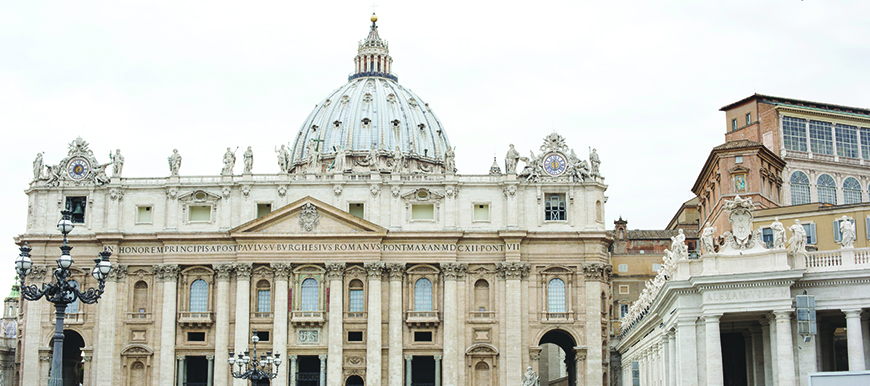Faith and fasting: Students improve selves with Ash Wednesday, Lent
Music sung by choir and congregation echoed throughout the Saint Thomas Aquinas Catholic Parish Church in Hyde Park as people flooded the pews to celebrate Ash Wednesday through worship.
“Remember you are dust and into dust you shall return,” multiple ministers repeated as they dipped their fingertips into a bowl filled with ashes, drawing crosses on the foreheads of every willing participant inside the church.
The symbol represents mortality and death and is meant to be worn until it comes off naturally.
“The ash is a reminder for us,” said Catholic Deacon, Jim Miller. “What we’re supposed to be thinking of during Easter are three main things: prayer, fasting and alms. Lent helps us to do that.”
The Lenten season is a spiritual journey, not only for the most devout believers, but also for anyone who is seeking to better themselves. Utah State University student Alexis Porter has been participating in the Lenten tradition since she was young.
“I gave up chocolate as a little girl, and that was the hardest thing because my parents always had candy and chocolate in the house,” she said.
Porter later moved up to sacrificing cartoons, abstaining from meat in junior high and then social media for the following several years. This time around, Porter pursues a healthier lifestyle.
“I’m going to try portion control with food,” Porter said. “It gets pretty obsessive for me, so I’m just going to try and moderate it.”
There are no true specifications set on what a person must give up. Rather, it’s a personal choice that should be born of penitence and sacrifice, Miller said.
“Fasting can be refraining from gossip and not being critical of others. It’s not always about food,” Miller said. “It’s about giving. Even if you’re a poor student, give something.”
According to the Catholic Education Resource Center, there has been “some kind of Lenten preparation for Easter” since the beginning of the Catholic Church. It became a homogeneous church-wide tradition around the year 325 A.D.
Today, nearly 1 billion Christians celebrate the Lenten season.
“It’s tradition,” said Catholic Father Francisco Pires. “Some people think that we just give up things for no reason, but it’s more than that. We give things up so others can have more.”
Lent lasts a total of 46 days, starting on Ash Wednesday and ending on Holy Thursday. However, Sundays aren’t technically counted as part of the fast. During Lent, the Sabbath is spent celebrating the resurrection of Jesus Christ, leaving 40 whole days of observance.
Other Christian denominations, such as the Lutheran, Anglican, Methodist and the Calvinist churches also celebrate the Lenten season.
“It’s just a good motivation for everything,” Porter said. “You can look back and be like, ‘Oh yeah, I did give that up,’ and it can inspire you to do it again. It’s to help you be more conscious of your life and your lifestyle choices.”
— ariell.allred@aggiemail.usu.edu

